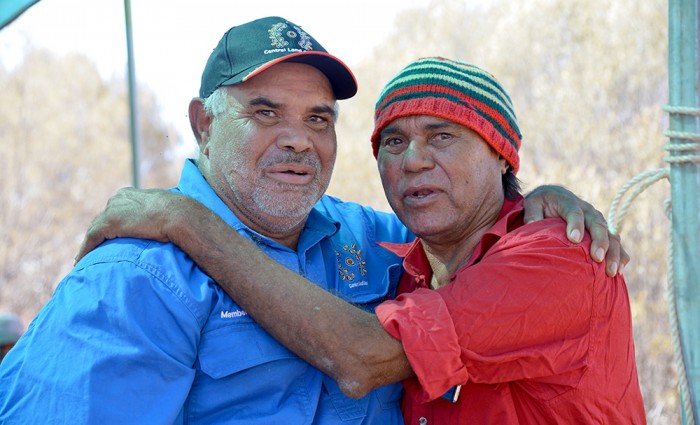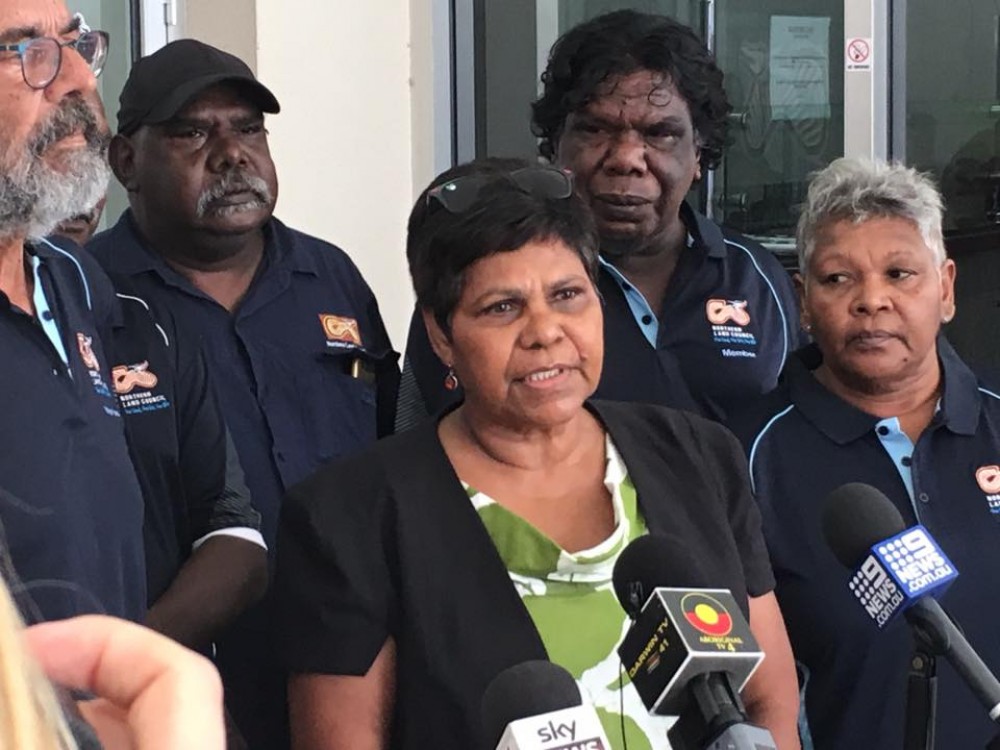Tag: Governance Support
Your guide to being a council member

Central Land Council delegates have elected Sammy Wilson as CLC chair and Barbara Shaw as deputy chair at their meeting at Yulara Pulka outstation near Uluru.
Mr Wilson, the chair of the board of joint management of the Uluru Kata Tjuta National Park and owner/operator of cultural tourism company Uluru Family Tours, pipped Ms Shaw by four votes.
“It feels very special to be elected on my grandfather Paddy Uluru’s country,” Mr Wilson said.
“I think he would be very happy.”
Mr Wilson, from Mutitjulu community, vowed to pursue the Uluru Statement from the Heart with whoever wins the coming federal election.
“I will tell them we’re not about taking over the government. We want to sit down with them at the same table and be listened to.”
Ms Shaw was elected deputy chair with 41 votes, only the second woman in the CLC’s history to win the office.
“My election results shows that the Central Land Council is ready for change,” she said.
Ms Shaw is a youth worker at the Tangentyere’s Brown Street Youth Drop-in Centre and works with Tangentyere’s womens family safety group targeting domestic violence in Alice Springs town camps.
She represents the Northern Territory on the Uluru Statement working group, and has been employed by the Royal Commission into the Protection and Detention of Children in the NT.
Ms Shaw stood as a Green Party candidate for the seat of Lingiari in 2010 and 2013.
Elected CLC delegates from 75 remote communities and outstations across the south of the Northern Territory also voted for the members of the CLC’s executive and the Aboriginals Benefit Account (ABA) advisory committee.
Mr Wilson thanked the outgoing CLC chair, Francis Kelly, for his six years of service and presented him with a kulata (spear) and spear thrower (mirru).
The CLC election was carried out by the Northen Territory Electoral Commission.
See the high resolution images of the election.

The Central Land Council welcomes the appointment of Marion Scrymgour, the Territory’s first female land council CEO.
CLC chair Francis Kelly said the appointment of a woman to the Northern Land Council’s top administrative position was an historic achievement and a win for equality.
“It’s another first for Marion, from first Aboriginal woman to be elected to the NT’s Legislative Assembly to first female land council CEO,” Mr Kelly said.
“I am sure she will be a good leader for the NLC and make them all proud.”
CLC CEO Joe Martin-Jard congratulated the NLC executive on having made a fine choice.
Mr Martin-Jard has known his new counterpart for many years and has come to highly respect her.
“Marion’s and my paths have crossed for two decades. I admire her tenacity and inclusivity and know how much she cares for Territorians from all walks of life,” he said.
“I am sure we will work well together. Marion will build on Joe Morrison’s positive legacy and provide the Northern Land Council with the stability it deserves.”
He said Ms Scrymgour has family ties to the CLC region through her father and, having worked in the NLC’s legal and land management sections in the 1980s, has first hand knowledge of the challenging work of the land councils.
“I look forward to working with Marion on tackling some of the common priorities of our constituents, none of them more urgent than sorting out the housing crisis in remote communities.”
The Australian Government must step out from behind closed doors and involve Indigenous people in a transparent process for reforming the discriminatory remote ‘work for the dole’ scheme, the Aboriginal Peak Organisations NT (APO NT) urged today.
The Government committed to reviewing the program, called the ‘Community Development Program’ (CDP) and consulting with remote communities in May 2017.
John Paterson, from APO NT said “We have been calling on the Minister for Indigenous Affairs to clarify and formalise the Community Development Program reform process since last December. Every request is met with silence,” said Mr Paterson.
“The Prime Minister and Minister for Indigenous Affairs never tire of talking about how they want to do things with us, not to us. That they want new ways of working with Aboriginal people. Yet here is a program that affects the lives of 29,000 Indigenous people and has caused immense harm, and we still can’t get confirmation of a process that includes us,” said Mr Paterson.
Australia’s election to the world’s leading human rights body, the UN Human Rights Council, this week relied on a pledge to support the Declaration on the Rights of Indigenous Peoples ‘in both word and deed’. The Declaration requires the Government to work in partnership with Aboriginal people and respect the right to self-determination.
“The Australian Government said to the world that it would tackle Indigenous disadvantage in partnership with our people. Meanwhile the Government’s racially discriminatory program results in Aboriginal people receiving more penalties than other Australians, and hurts our communities,” said Mr Paterson.
“If the Government is serious about the promises it made to get elected to the Council, the Minister for Indigenous Affairs will immediately announce an independent and transparent reform process involving a partnership with Aboriginal people,” added Mr Paterson.
APO NT launched a positive alternative to CDP in Canberra last month (APO NT alternative to CDP).
Our model would create 10,500 part time jobs to be filled by people in remote communities who currently get less than the minimum wage to do work they should be employed and paid properly to do.
Our model would create new jobs and enterprises, strengthen communities and get rid of pointless administration. It has incentives to encourage people into work, training and other activities, rather than punishing people who are already struggling.
David Ross from APO NT, said, “Thirty-three organisations from around Australia have endorsed our new model. We have done the work, we want to talk, and we want a program that will actually deliver positive outcomes on the ground.”
“The Australian Government appears to be unable to put the rhetoric of collaboration into practice. What do all these commitments mean if they don’t deliver a seat at the table on this fundamental issue? Let’s not repeat the mistakes of the past and impose a top-down program from Canberra that is guaranteed to fail in remote Australia,” Mr Ross concluded.
Contact:
John Paterson (Aboriginal Medical Services Alliance NT), APO NT Spokesperson: 0418 904 727
David Ross (Central Land Council), APO NT Spokesperson: 0417 877 579
KEY FACTS ABOUT THE COMMUNITY DEVELOPMENT SCHEME
The CDP is the main program of job related assistance for unemployed people in remote areas of Australia. It is the equivalent of jobactive (formerly JSA) and Disability Employment Services in the rest of the country.
The CDP has around 35,000 participants, around 83% of whom are identified as Indigenous.
People with full time work capacity who are 18-49 years old must Work for the Dole, 25 hours per week, 5 days per week, at least 46 weeks per year (1150 hours per year). Under jobactive Work for the Dole only starts after 12 months, and then for 390-650 hours per year.
Despite having a caseload less than a 20th the size of jobactive, more penalties are applied to CDP participants than to jobactive participants.
In the 21 months from the start of CDP on 1 July 2015 to the end of March 2017, 299,055 financial penalties were applied to CDP participants. Over the same period, 237,333 financial penalties were applied to job active participants.
